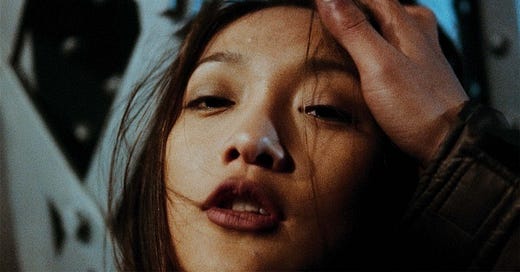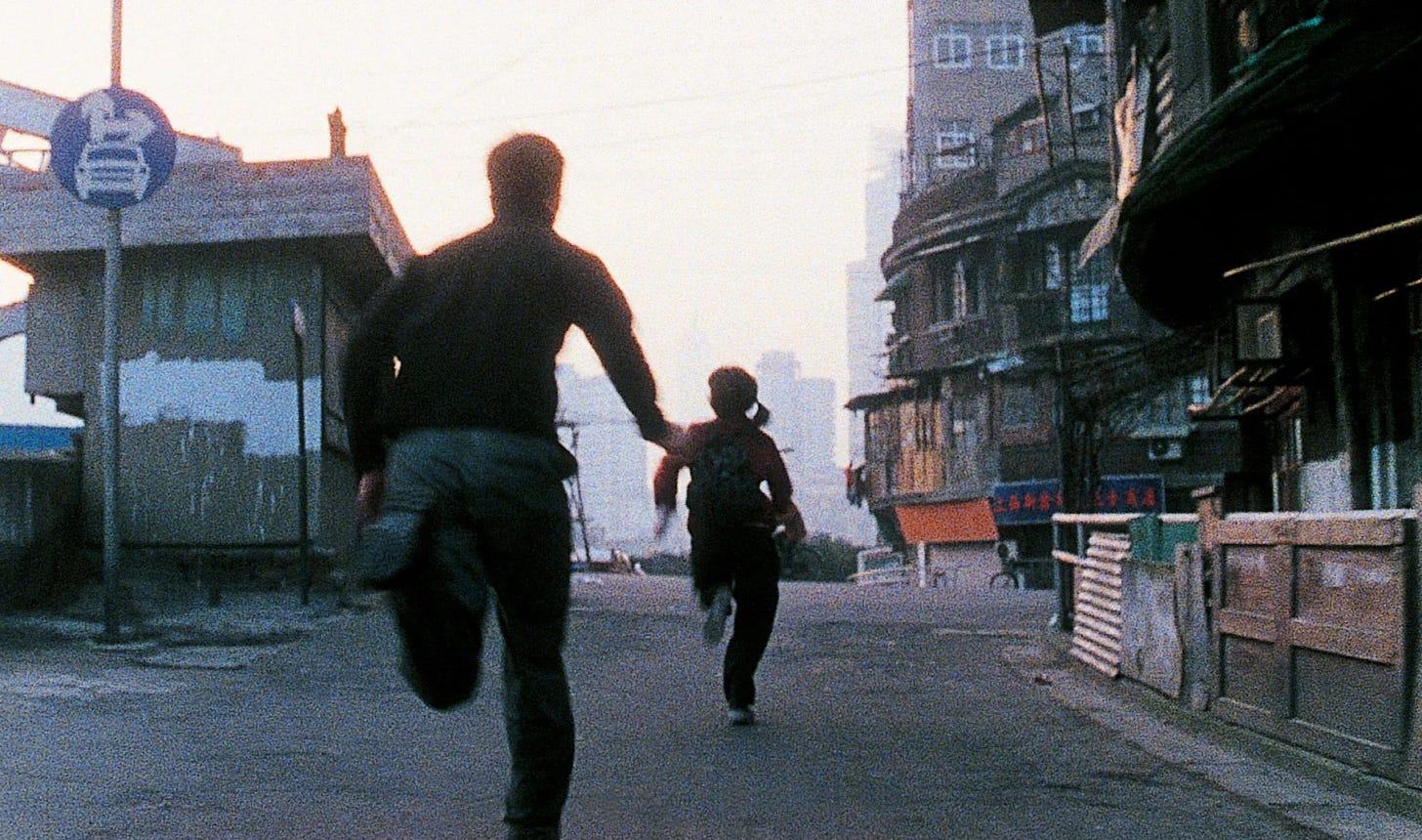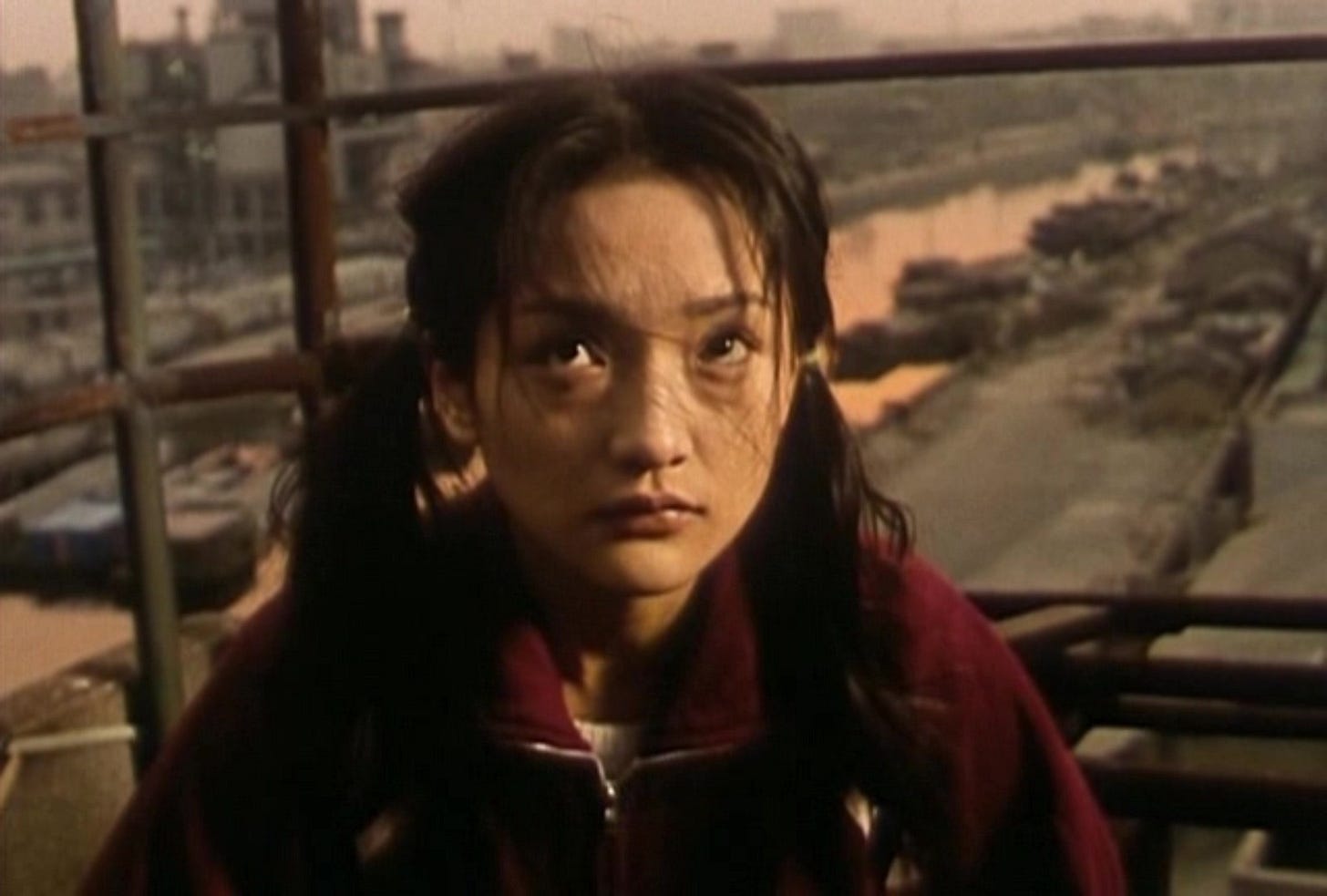Spoilers for Suzhou River (2000). Trigger warnings for brief descriptions of suicide.
Lou Ye’s 2000 neo-noir Suzhou River could be seen as a prototypical example of China’s sixth-generation movement. It was shot on 16mm, with a small budget, and was not released without controversy. The director made the film without the approval of the Chinese authorities and was banned from filmmaking for two years after its screening at Rotterdam.
Had the authorities looked closer, they may have found more to be upset about within the film. Like many of his contemporaries, Ye focuses on the margins of society. Suzhou River takes place on the waterfront of the titular river in Shanghai, and the opening voiceover from the unseen narrator (Zhang Ming Fang) discusses how every aspect of life can be seen when travelling down the watercourse.
He highlights the friendships and rivalries apparent, the burgeoning love affairs and violent encounters. The families trying to get by and the people living and working by the river. He also mentions the pollution. He calls the Suzhou River the dirtiest river in the world. It feels like a throwaway line, but it informs nearly every aspect of the story moving forward.
This is because nearly every key moment in the film’s twisty, Vertigo-inspired plot takes place on the banks of the river. Similarly, the river itself has been a major part of China’s economic development. From the 19th century, Shanghai became a global exporter and then a key supplier to China and other socialist countries after the Chinese Communist Party took control in 1949. When economic reforms allowed foreign trade back into the city in the 1990s, Shanghai once again became an international hub, although this time for financial and corporate operations.
As with any major economic and industrial growth, this led to displacement of citizens and major pollution. As Ye was shooting the film, a 16-year project to clean the river was underway, reportedly removing over one million cubic metres of sludge.
How is this relevant to the film? Well, Suzhou River is about secrets. Like the pollutants that were dumped in the river, each of the character’s secrets finds their way into the water as well. The river doesn’t just witness the events of the film, it often swallows them whole.
It also acts as a border between the wealthier districts of the city and the working-class areas, so as we see the characters in the film strive for a better life it’s no surprise that the river becomes both a barrier and a goal.
And the past informs every aspect of the film. By keeping the narrator nameless and behind the camera, we remain disconnected from the storyteller and engaged with a multi-threaded plot. Like the river, we observe the characters at a distance. In this way, the characters become representatives of the seedier parts of Chinese society. The displaced, the petty criminals, the violent police force and the organised crime syndicates.
The past also informs the plot, and the first-person perspective keeps this at the forefront of our minds. At the start of the film, the narrator meets Meimei (Zhou Xun) who performs a mermaid show at a local bar.
The use of the mermaid motif is also interesting, given the film’s focus on water. Mermaid folklore is broad and complex, changing with each culture. While Chinese and the broader Asian continent tends to see mermaids as generally positive creatures; Western cultures have occasionally conflated them with sirens, positioning them as harbingers of doom. Interestingly, Slavic folklore posits that mermaids are the spirits of young women who died by drowning before their wedding. This example in particular feels important to the story of Suzhou River.
Our narrator explains that Meimei is flighty; often taking off for days at a time and suffers bouts of depression. At one point, she says that she hasn’t experienced true love, not like Mardar had for Moudan. Here the story switches, and the narrator takes us through a local legend of a petty criminal and courier Moudan (Jia Hongsheng) who falls in love with Moudan (also played by Xun), the daughter of a gangland boss.
Their relationship barely gets off the ground, however, because Mardar is drawn into a kidnapping plot. One which will see him take Moudan and extort money from her father. Devastated by the betrayal, Moudan escapes and throws herself into the river, while Mardar is captured and sentenced to prison.
Channelling Alfred Hitchcock, Ye doesn’t allow this story-within-a-story to just be an urban legend. Instead, when Mardar is released from prison he searches for Moudan, not believing her to be dead, and bumps into Meimei, still performing as a mermaid. The resemblance between the two only increases Mardar’s obsession and he pursues her.
By bringing local legend into the film’s real world, Ye makes the story of Mardar and Moudan a historical event. In doing so, it creates a loop. An endless cycle of people striving for upward mobility and love, only for circumstances to pull them backwards. Mardar will forever be searching for his true love, and when he finds her, it will end in tragedy. The story will forever be romanticised, only for real life to dull the edges.
Like the Suzhou River, Ye creates a story with an endless flow, taking and redistributing the best and worst of society. It becomes a location; a metaphor for industrialisation and displacement; and a symbol for something better just around the bend.
Writer/director: Lou Ye
Starring: Jia Hongsheng, Zhou Xun, Zhang Ming Fang









